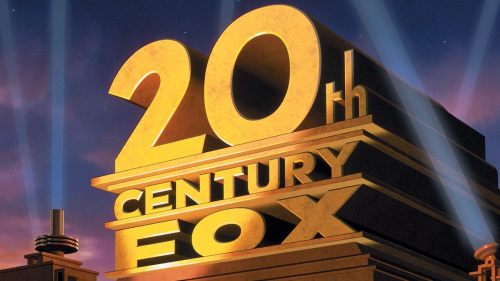Why Geeks Need Comic-Con More Than Ever
I’m at Comic-Con. Again. Yes, this sounds like sarcasm or griping or complaining. It kind of is. Whatever cheery perks there are to being an “entertainment industry professional” also comes with a hint (sometimes more than that) of the old been-there-done-that malaise. It’s fun to be jaded, because being jaded is a sign that you’re at least somewhat close to where you want to be in your life. Jack Nicholson sleeps through half the Oscars every year and no one says that he’s some ungrateful snob for not seeming more enthralled by the gilded pomp and circumstance of the evening.
Comic-Con is transparently an industry event — a conclave of actors, filmmakers, publicists, and dehydrated executives eager to sell you on their latest genre project. Older fans lament the lack of emphasis placed on comic books, like the person who snickers and says “remember when MTV played music videos?” Why can’t it go back to sketchy older men suffering the early symptoms of heat stroke selling rare comics and yellowed Star Wars trading cards to teenagers on holiday?
I’ll admit to being nostalgic for the days when geek culture wasn’t so omnipresent, when going to see something like the Spawn movie could galvanize the weird kids at school while the rest of the world ignored it. Perpetually being sold to is exhausting. Attending a convention the size of San Diego Comic-Con is cost prohibitive for many people. Genre entertainment is so abundant that I haven’t even gotten around to watching Stranger Things yet. I might never watch it. Now, every fan can be jaded, cynical, or consistently disappointed in one way or another. Sometimes, the precious magic of fandom feels lost amongst the incessant hoopla, but that’s because so many of us see Comic-Con as a burden — a neverending series of lines or an overcrowed, expensive B.O. festival masquerading as a Hollywood networking event.
Throw all the gaudy billboards, cheesy “V.R. experiences,” and sloppy open bar parties out the window and Comic-Con is still something special. It’s a moment where we all get to be together. That still means something, even if that gets muddied by the ad campaigns for the reboot of seaQuest DSV (not a real project, but what is stopping Hollywood from digging up that corpse?).
If anything proves the necessity of Comic-Con (and events like it around the world) it’s the controversy over the casting of a female lead on Doctor Who. The geek world comes off as homogenous — a collective of forward-thinking, intelligent creatures with a love for the fantastic. After all, much of genre entertainment has, at its core, a firm morality that guides its characters — from the thoughtful optimism of Star Trek to the unwavering code of ethics that defines Batman, Superman, Spider-Man, the X-Men, and other comic book icons. The magnificent rebooted Planet of the Apes trilogy was one long meditation on how to channel rage and overcome our baser instincts in the face of prejudice.
With the idiocy of the Doctor Who controversy or the outrage over Star Trek: Discovery having a black, female lead, it makes fans wonder if the people screaming on the internet have even watched these shows. All of this conflict takes place where most inane discourse occurs in the world today: on social media. Nasty comments and mean tweets build up like a malignant tumor and make me want to do nothing more than hide under my bed for a week. The righteous drag their oppressors for their transgressions and the oppressors become more virulent in their hatred. Nothing is solved and the cycle continues the next time a race or gender barrier is broken in the geek world.
Comic-Con is the one moment where we actually have to face each other, share a tiny little room with each other, and engage without the anonymity of social media. When I was younger, the first time I realized a community of fans existed that I could be a part of was watching movies like Clerks or Robert Meyer Burnett and Mark Altman’s film Free Enterprise that celebrated unreserved enthusiasm for material otherwise labeled “dorky.” I didn’t really feel a part of it until I went to Comic-Con. It’s a bonding moment that becomes more vital the deeper our society falls into the quicksand of technology. Standing in line for three hours to see Joss Whedon might sound terrible, but you’re doing it with people of like mind.
Comic-Con is overly commercial, but that’s merely a byproduct of its immense popularity. It’s entirely up to you how you interact in that environment. You can be a miserable prick if you want, or you can embrace the rarity of many people who share the same passion all being in the same place at the same time. Comic-Con shouldn’t get smaller. It shouldn’t retreat back to the days of old comics and sparsely attended panels on the intricacies of shading on capes. It should be bigger and more welcoming — and it should be cheaper.
The cost of attending Comic-Con is bordering on outrageous, if it hasn’t already jumped across said border by now. Also, smaller conventions can’t compete when fans have to save every last penny just to afford to make it to San Diego. It’s great that Comic-Con International is making more of its programming available online, but the internet bubble is what we need to escape. Sure, Hall H smells terrible and the food is overpriced and goddamn, is it hot, but at least you’re there and hey, that guy just complimented you on your Akira t-shirt.
The discourse around nerd culture isn’t going to improve until people remember the commonality that brings us together in places like San Diego. Studios are starting to skip Comic-Con in favor of their own flashy events, and that could open up an opportunity for fans to take back a measure of the week, to repurpose it as a true celebration of what unites us. It’s easy to lament the changes and pine for the past. The hard part is to remember what hasn’t changed: we all still love the same things.



